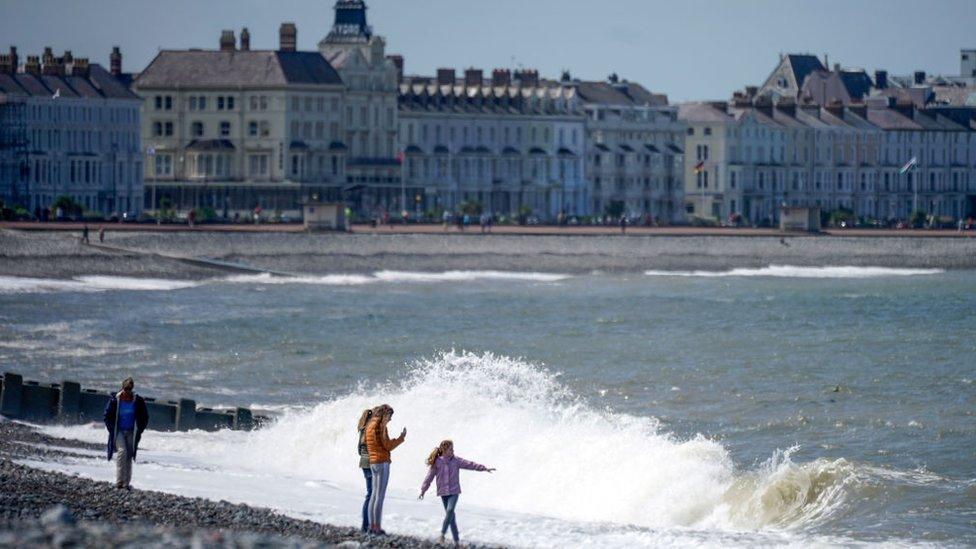Covid: Why rising coronavirus rates may not mean lockdown in Wales
- Published

Lockdowns were previously advised when Covid rates crossed certain thresholds, but vaccines have changed things
With Wales' Covid case and positivity rates the highest since February and steadily rising, it could be asked if Wales is considering another lockdown.
The World Health Organization (WHO) guidance last year said governments should consider imposing restrictions if certain thresholds were crossed.
Those being if the number of new infections over a seven-day period was above 50 per 100,000 population and if the positivity rate - which is the percentage of tests which return a positive result - passed 5%.
Wales' case rate has been above 50 since 23 June and, on Monday, the positivity rate rose above 5%.
The case rate is now 95.6, while the positivity rate was 5.5% on Monday as two new Covid deaths and 1,256 cases were reported.
Public health officials are attributing this to the more transmissible Delta variant, particularly in north Wales., external and the easing of lockdown restrictions - with most cases involving people under 30.
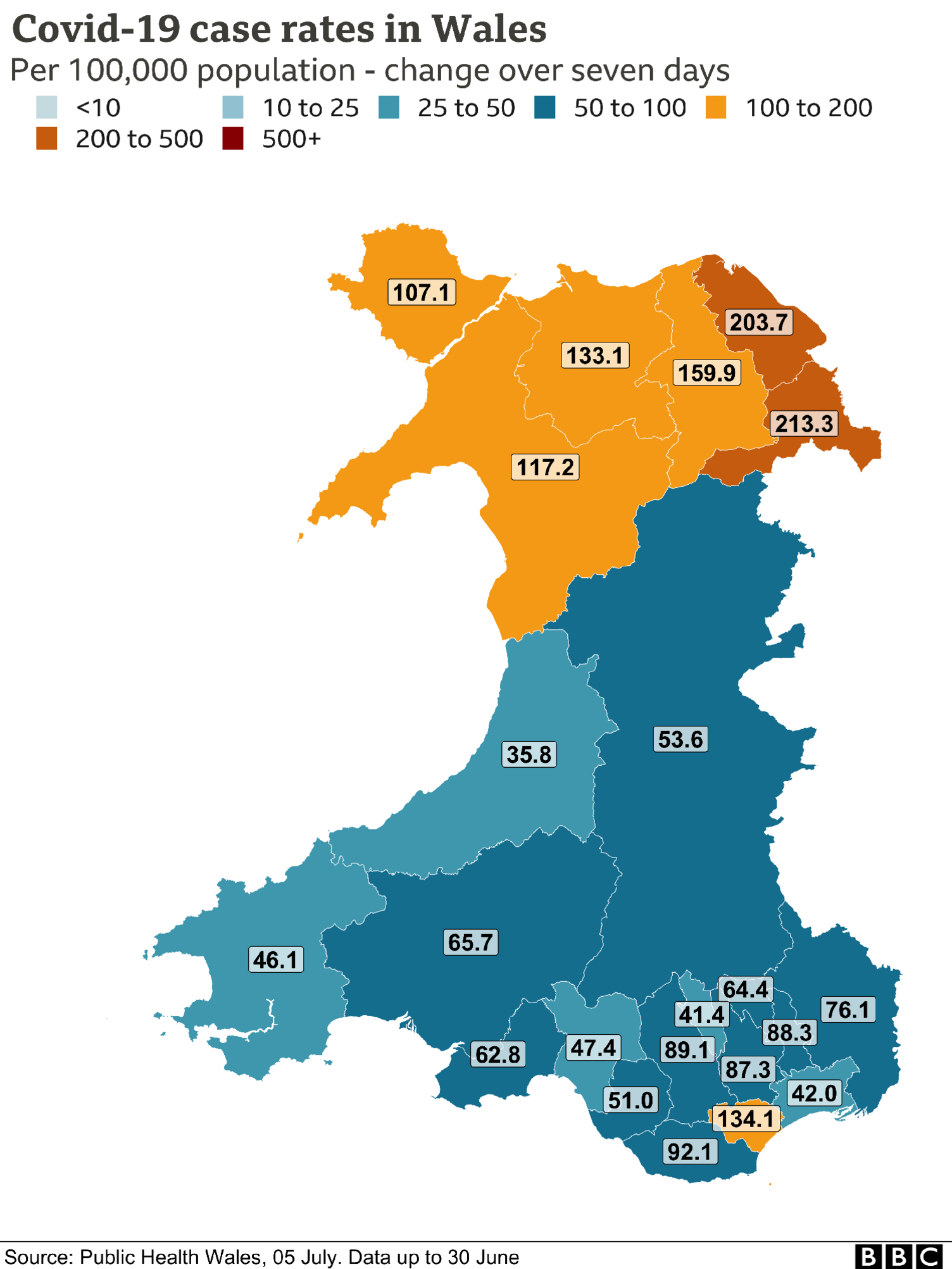
Cases are higher in north Wales
But what seems different in this third wave is that case rises have not yet transferred to a surge of people critically ill and potentially ending up in hospitals.
Crucially, Wales has fully vaccinated almost 70% of its adult population - with 90% of adults having at least one dose - and the number of Covid patients in Welsh hospitals recently reached its lowest figure since the pandemic began.
Wales' first minister last month paused lockdown easing because of the rise in the new transmissible Delta variant - but with cases rising, could restrictions be added not lifted?
"We continue to monitor the public health situation and hope we can manage the rise in cases without the need for the type of lockdowns that were required earlier in the pandemic," the Welsh government said.
"A number of factors - including case rates, hospitalisation rates and demographics - are considered when we decide how best to manage the effects of the pandemic"
A leading virologist said the drop in patients becoming seriously ill as a result of the vaccine programme has reduced the need for tighter restrictions.
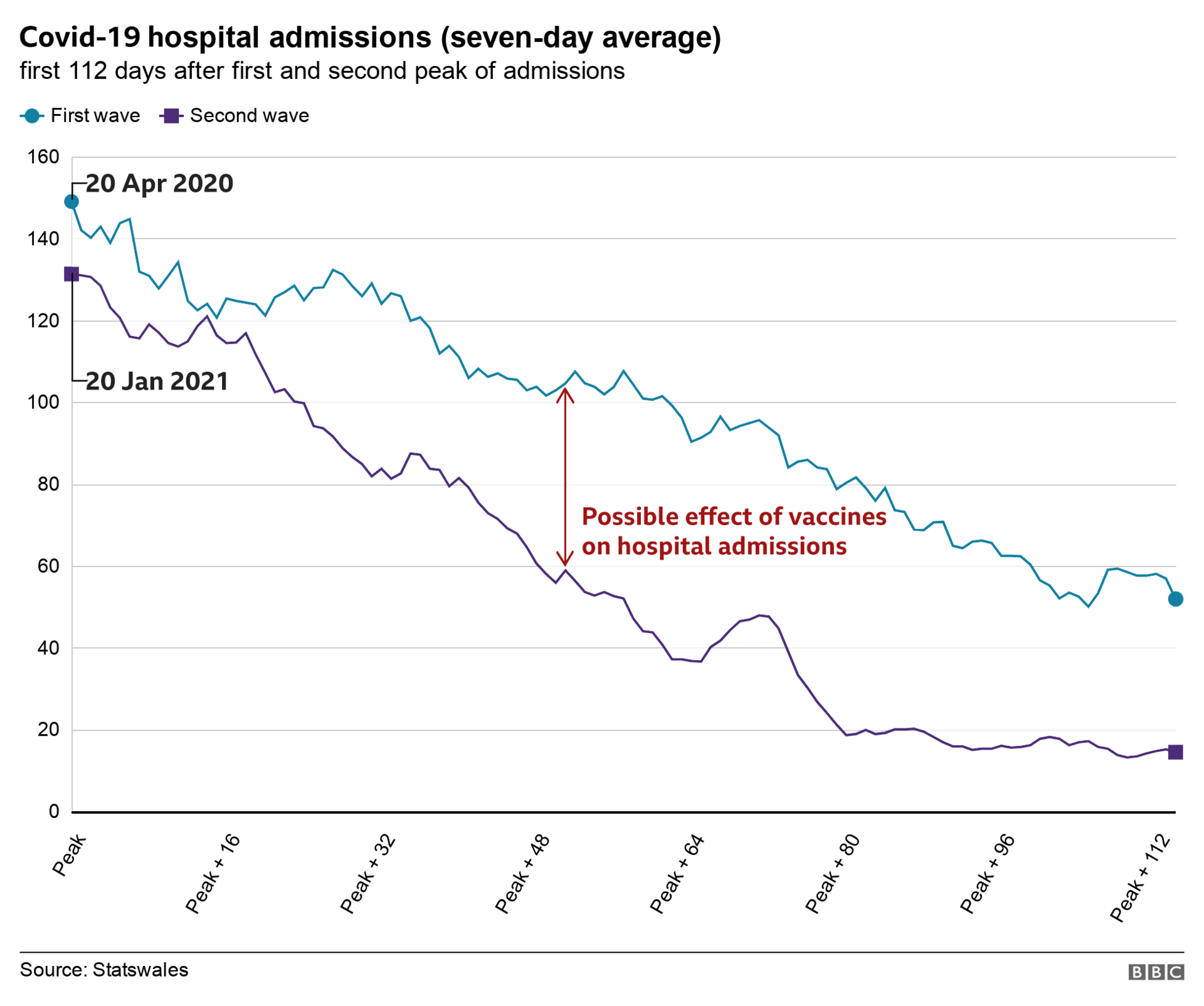

"The big difference we have is vaccines," said Dr Richard Stanton from Cardiff University.
"The kind of levels that we would have been worried about in terms of case rates, six months ago, 12 months ago are not levels that would necessarily worry us now.
"As case rates go up we will see an increase in hospitalisation rates, but the amount of hospitalisations we get as those case rates go up is going to be a lot lower.
"The knock on effect of that is, we can afford to have more transmission without overwhelming the NHS, so we can afford to open up more without overwhelming the NHS."
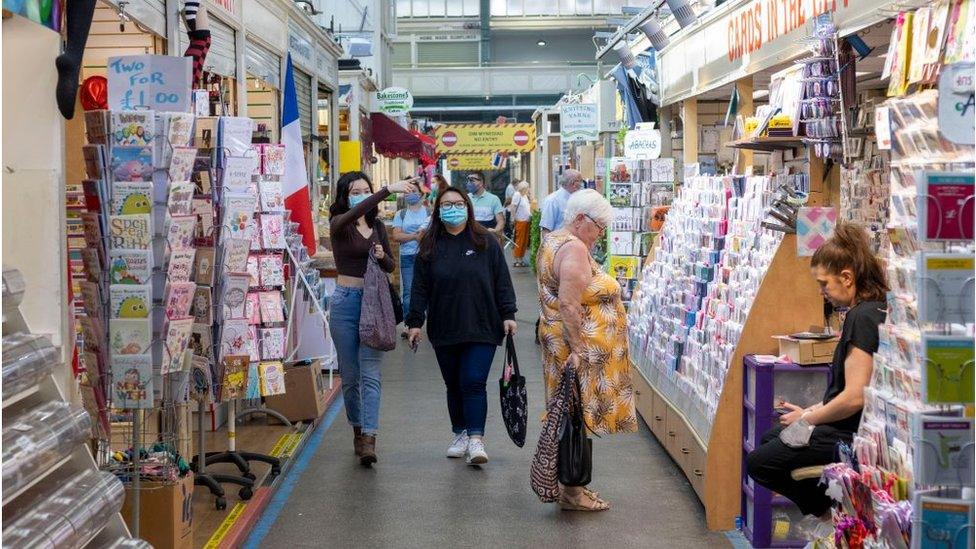
Case rates are rising, but still lower than the peak of the second wave
The rates are still low compared to the height of the second Covid wave in the winter, where the case rate rose above 600 per 100,000 people and the test positivity hit 25% in January.
Wales, at one stage before Christmas, had the UK's highest Covid case rate and in January about 3,000 people were in Welsh hospitals with coronavirus - more than a third of all patients.
But despite the rising recent rates, Covid patients made up 1% of all patients in hospital on 30 June - with a record low of 86 - and Wales has the UK's lowest Covid infection rate.
This number in hospital has risen again in the past week and is now about 100, according to Wales' health minister.


Vaccines 'have weakened the link' with hospitalisation
Eluned Morgan said: "We are increasingly confident this wave will not cause the same level of serious illness and harm as the previous waves we have experienced in Wales.
"We believe vaccination has weakened the link between the virus and hospitalisation, even in the face of the new Delta variant."
Baroness Morgan said people should take the vaccine and continue to follow Covid rules in order to reduce transmission.


What has the Welsh government said?
The Welsh government has said: "Since the start of the pandemic we have taken a cautious, phased approach to reopening and have been led by the data that is presented to the cabinet by the chief medical officer and our scientific adviser.
"A number of factors - including case rates, hospitalisation rates and demographics - are considered when we decide how best to manage the effects of the pandemic.
"The first Minister announced a four-week pause to any further relaxations to the coronavirus restrictions on June 18 to focus on vaccinating more people to help manage the impact of this new wave of infections.
"Wales has the best vaccination rates in the UK - almost nine out of 10 adults have had one dose and two-thirds of adults have completed the two-dose course.
"We continue to monitor the public health situation and hope we can manage the rise in cases without the need for the type of lockdowns that were required earlier in the pandemic.
"Sticking to the rules and taking up the offer of a vaccine is the best way to protect ourselves and prevent the NHS being overwhelmed."
- Published5 July 2021

- Published4 July 2021
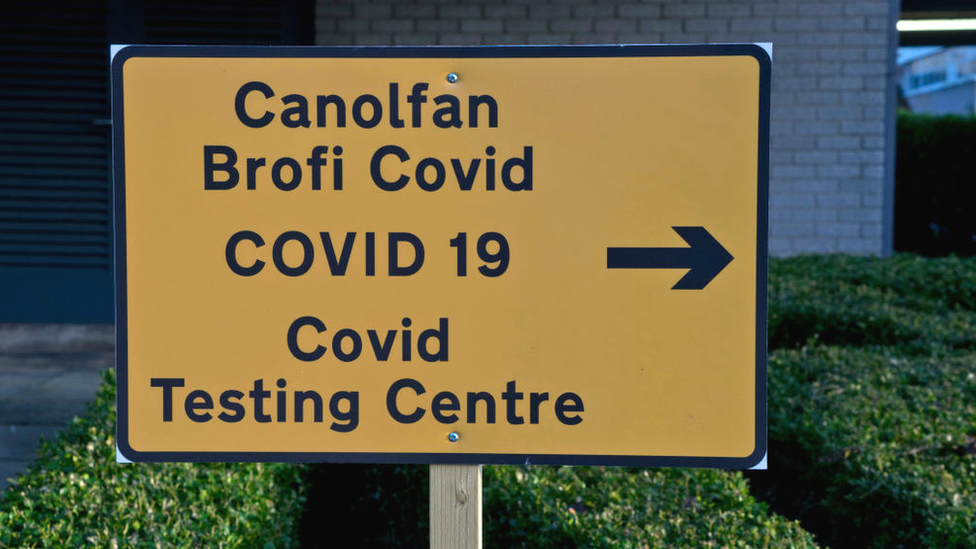
- Published4 July 2021

- Published4 July 2022
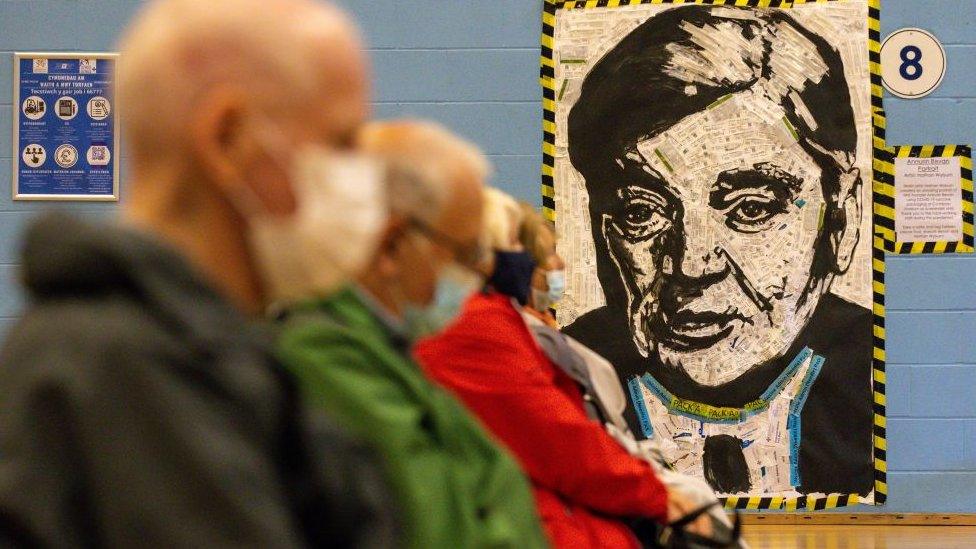
- Published4 March 2022
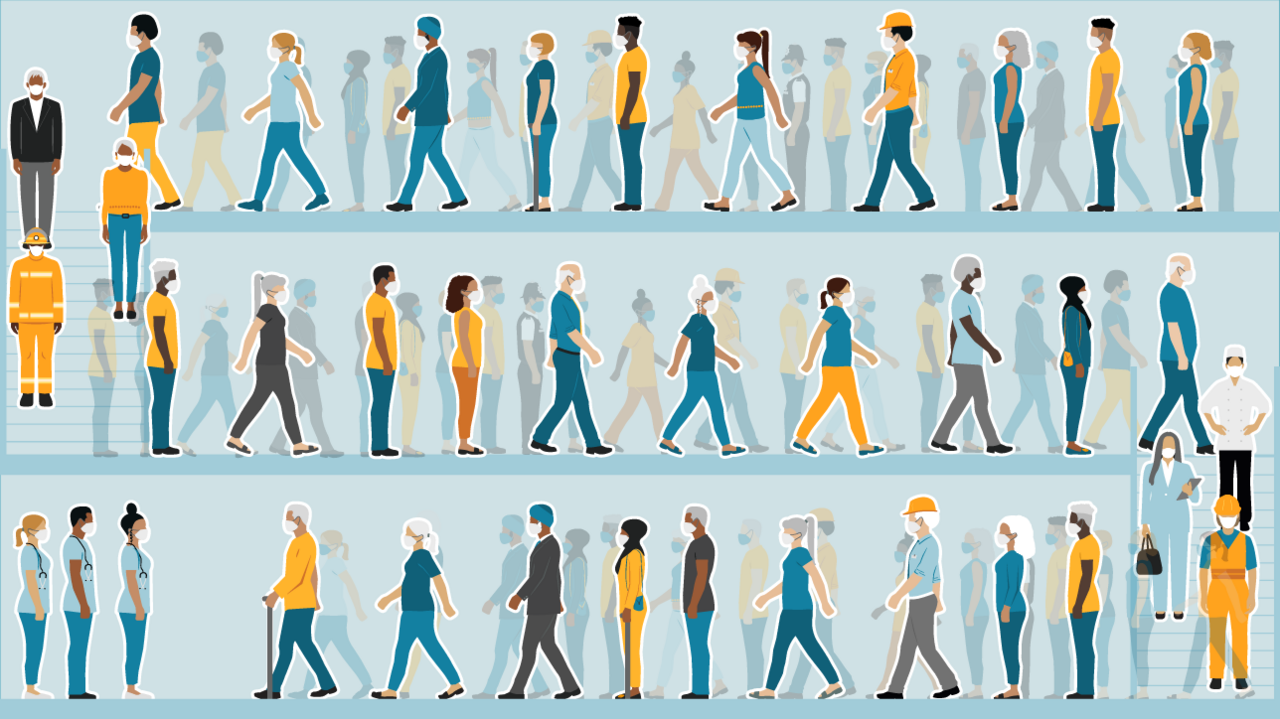
- Published25 June 2021

- Published25 June 2021
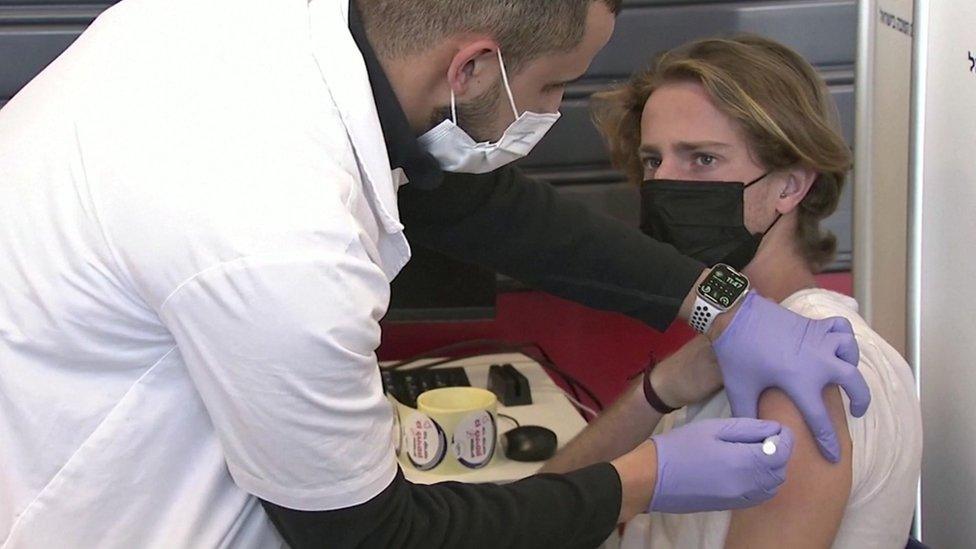
- Published22 June 2021
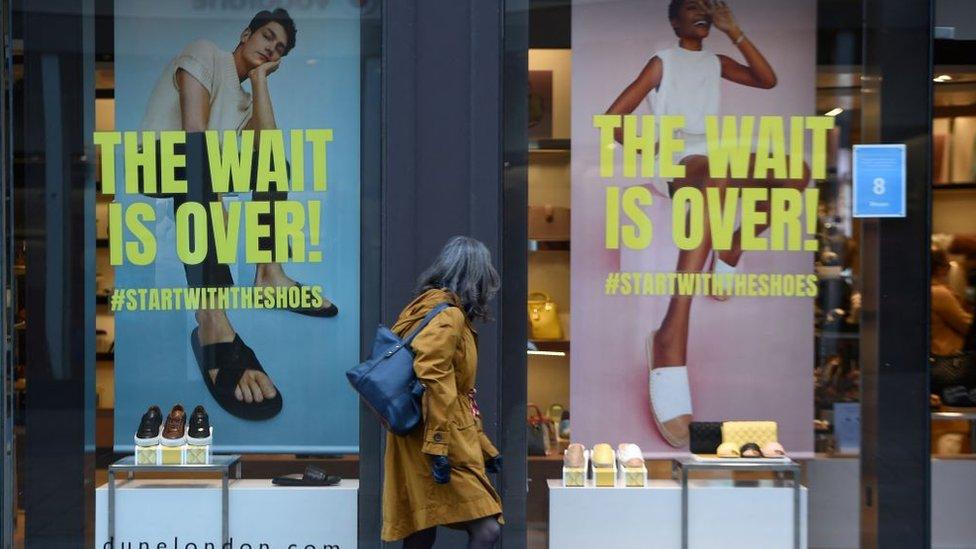
- Published21 June 2021

- Published18 June 2021
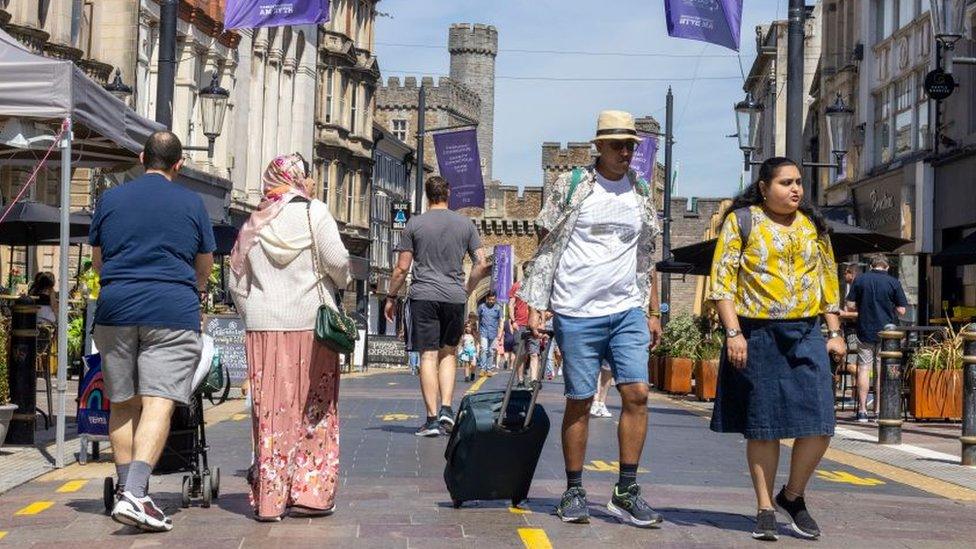
- Published17 June 2021

- Published9 June 2021
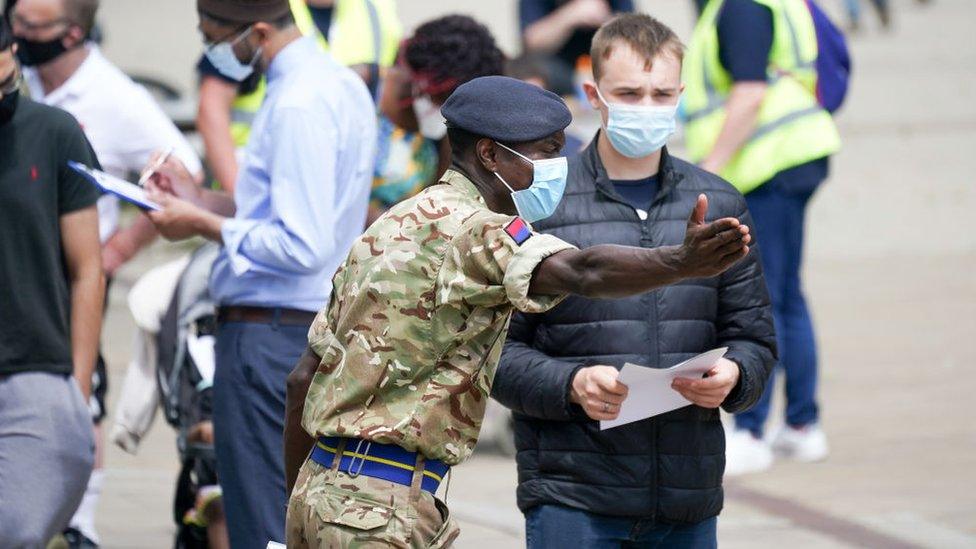
- Published3 March 2021
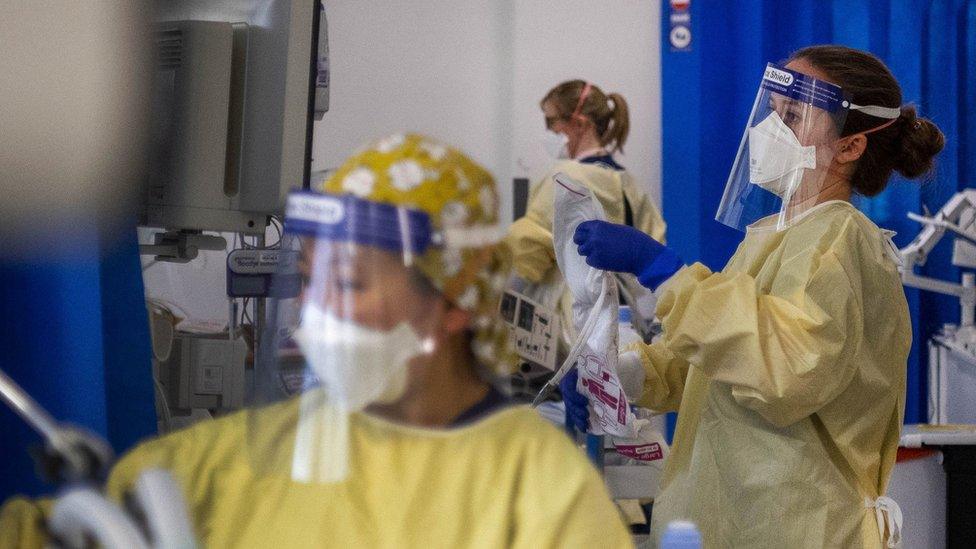
- Published19 June 2021
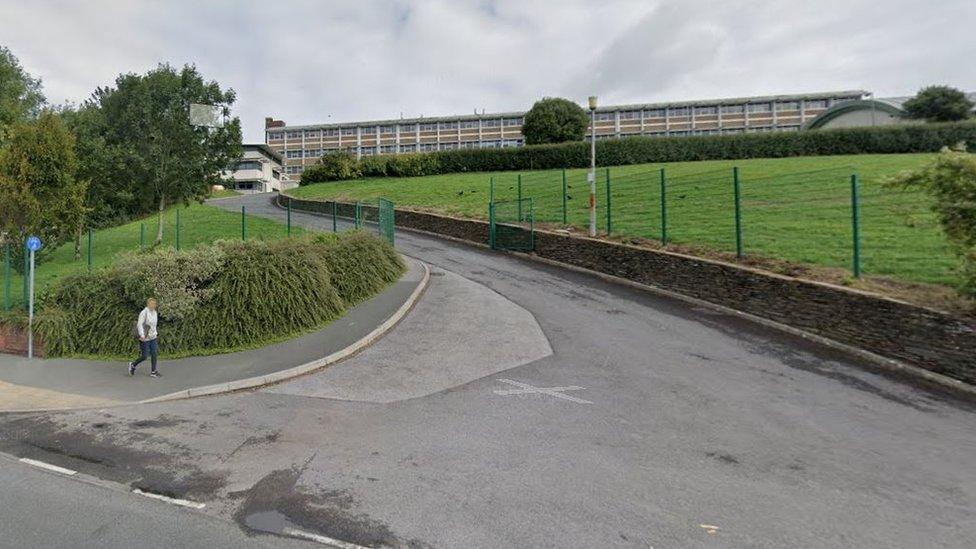
- Published31 May 2021
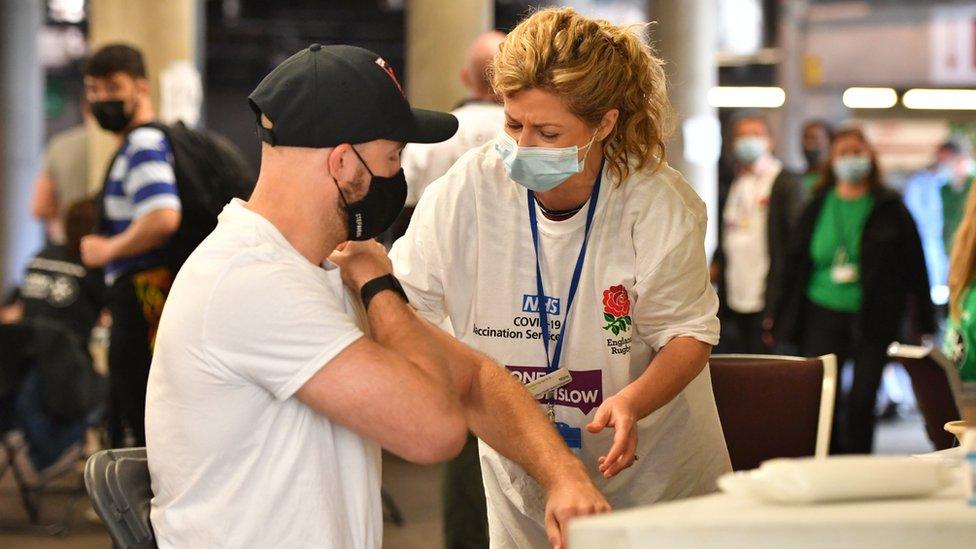
- Published6 June 2021
